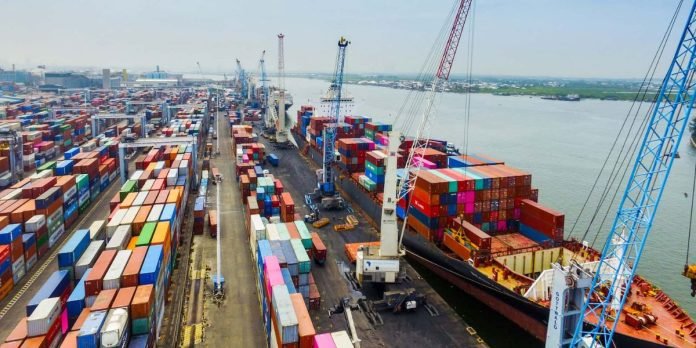The minister of Finance and coordinating minister of the Economy, Wale Edun yesterday told foreign investors that the government through its veracious reforms have laid the foundation that would make the country the desired destination for private investors as he said the country is on the road to 7 per cent annual growth, calling for investments in infrastructure, manufacturing, and agriculture.
This is as the Governor of the Central Bank of Nigeria (CBN), Olayemi Cardoso, said Nigeria’s economy is on a path of stabilisation and recovery following months of tough but necessary reforms. The minister of Finance and CBN governor stated this while speaking with global investors at a high-profile investment forum in Washington DC on Tuesday.
Edun said the administration of President Bola Tinubu has implemented foundational reforms that are now yielding results, with the Nigerian economy expanding 3.84 per cent in Q4 2024 and 3.4 per cent overall for the year.
“Our goal is not just to maintain this momentum, but to accelerate it. We are targeting seven per cent annual growth, and we believe the policies we have implemented have laid the groundwork to achieve this.”
On his part, Cardoso credited orthodox monetary policy and institutional resilience for the country’s improving macroeconomic indicators. “The numbers speak for themselves. The difficult reforms that have been undertaken have begun to bear fruit. Orthodox monetary policy was a road we chose deliberately, and we had no intention of compromising on it.”
Cardoso pointed to recent upgrades in Nigeria’s credit outlook by global ratings agencies, which he said validate the country’s efforts to restore macroeconomic discipline and investor confidence. “We are definitely in a much better place than we could have been,” he said.
With the rising global economic uncertainty, Cardoso said while Nigeria also had to weather market turbulence, the country’s relative resilience in recent weeks has demonstrated the growing strength of its institutions and policy direction.
“For the past 18 months, we’ve been in a period of crisis. Our response was to roll up our sleeves and do the hard work to build a stronger economy. That’s what we’ve done not just in terms of numbers, but in strengthening institutions and learning through experience.”
“There’s one common thread in all of this: building confidence. We’re not perfect, and we’ve never claimed to be, but people are seeing a clear direction. Confidence in the naira is returning, confidence in our strategies is growing, and there’s renewed hope in the future of our country.”
Cardoso also pointed out that the central bank has observed a surge in interest from international investors, who are increasingly viewing Nigeria as a viable destination for capital. “I’ve seen a lot more interest in investing in Nigeria in the recent past. And if we stay the course, the transformation we all hope for is within reach.”
Listing the removal of fuel subsidies and the transition to market-driven pricing in both the petroleum and foreign exchange markets, reforms that the government had undertaken, the Minister of Finance, Edun, said the move had restored investor confidence and enabled more accurate price discovery across critical sectors.
Edun emphasized the significance of the reforms, noting they are “unprecedented” and have drawn praise from multilateral partners during ongoing discussions in Washington. “We said we would do it, and now we have done it. This time, we’re staying the course.”
He noted that with macroeconomic stability gradually returning as reflected in narrowing budget deficits, improved trade balance, and a stabilizing exchange rate, Edun said the government is now shifting its focus to targeted sectoral growth.
According to him, the government has on top of its list Agriculture as it in the entire value chain, with the twin goals of boosting food security and enhancing productivity. “We aim to close the food supply gap, not by importing more, but by enabling domestic producers to scale and innovate,” he said.
On infrastructure, the minister revealed the rollout of 90,000km of fiber optic cable to enhance digital connectivity, a move seen as critical to empowering Nigeria’s youth and tech entrepreneurs. In addition, 4,000km of roads have been tendered for private sector participation, with the first 1,000km already signed off for delivery.
“Our model is clear: at a time of constrained fiscal space, we must crowd in the private sector,” he said, adding that concessions and public-private partnerships will be central to the government’s infrastructure push.
The manufacturing sector also received emphasis, particularly with regard to leveraging Nigeria’s large internal market and the Africa Continental Free Trade Area (AfCFTA). “With a competitive exchange rate, we now have an opportunity to manufacture for export. This is a key plank of our growth strategy,” Edun said.
To support MSMEs and industrial growth, Edun disclosed that financial sector reforms are underway to deepen access to finance. “We’re working to ensure that finance is available at every level—from micro-enterprises to large-scale industry,” he said.
We’ve got the edge. Get real-time reports, breaking scoops, and exclusive angles delivered straight to your phone. Don’t settle for stale news. Join LEADERSHIP NEWS on WhatsApp for 24/7 updates →








